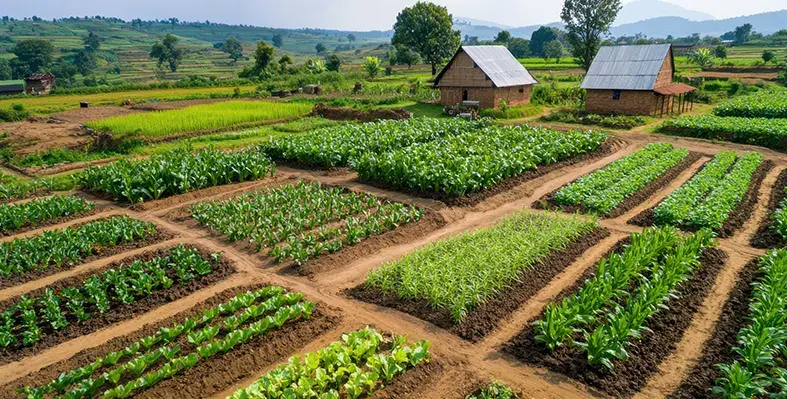To tackle challenges such as climate stress, low yields, and disease outbreaks, the National Root Crops Research Institute (NRCRI), Umudike, has successfully developed and released over 90 improved crop varieties tailored for Nigerian farmers
These include more than 50 cassava varieties, 30 yam varieties, 10 potato types, 4 sweet potato lines, and 2 ginger varieties, all bred for better productivity, disease resistance, and climate adaptability.
This was revealed by Prof. Chiedozie Egesi, Executive Director and CEO of NRCRI, during his address at the 37th International Conference of the Biotechnology Society of Nigeria (BSN), held from August 18 to 22, 2025, at the NRCRI Library Complex in Umudike. The conference, themed ‘Innovative Biotechnology for National Growth: Pathways to Food Security, Health and Environmental Sustainability’, was hosted in collaboration with the Michael Okpara University of Agriculture, Umudike (MOUAU).
Prof. Egesi underscored the institute’s commitment to biotechnology as a critical tool in driving agricultural progress. He stated that NRCRI has consistently remained at the forefront of crop improvement by using advanced technologies like molecular markers, tissue culture, and gene editing to develop resilient and nutritious crop varieties that meet the demands of both farmers and markets.
The institute has also introduced modern propagation techniques to improve seed systems. These include the use of vine cuttings for sweet potato, aeroponics for rapid yam seed multiplication, and semi-autotrophic and autotrophic systems for cassava, potato, and sweet potato. These innovations ensure faster, healthier, and more reliable planting material production.
Beyond research, NRCRI has prioritised making these innovations accessible to farmers. Through rural empowerment schemes and training programmes, the institute supports technology adoption across the root and tuber value chain. “We have created vibrant communities of seed entrepreneurs across the country, ensuring sustainable access to quality planting materials, thereby strengthening seed systems,” said Prof. Egesi.
He added that thousands of farmers, students, and agro-industrialists have benefitted from technical and vocational training, focusing on areas like advanced multiplication techniques and the development of value-added products. “Training has focused on specialized areas such as advanced multiplication techniques and value-added product development.”
Among these innovations is a technology that extends the shelf life of gari to over one year, enhancing its storage, export potential, and market value. Other product developments include starch, instant fufu, baby formula, bread, chips, biscuits, and flakes.
Prof. Egesi stressed that NRCRI’s work directly contributes to national priorities such as food security, poverty reduction, and economic empowerment, aligning with the Renewed Hope Agenda of President Bola Ahmed Tinubu GCFR. He also reaffirmed the institute’s commitment to climate-smart agriculture, noting its essential role in promoting environmental sustainability amid ongoing climate change challenges.





